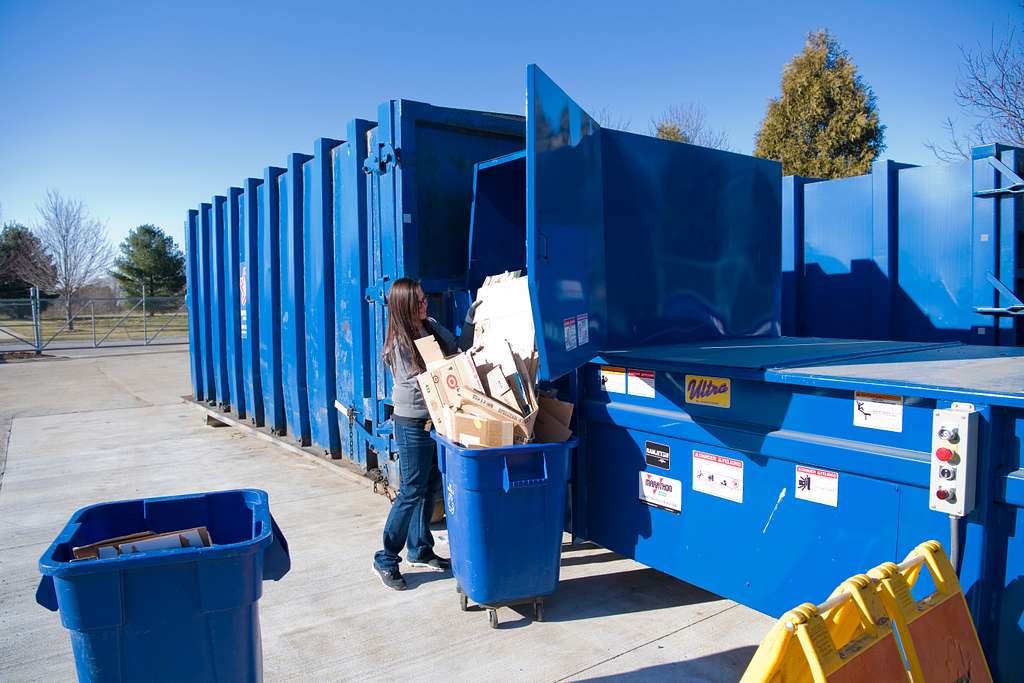Proper trash and recyclable storage is essential for maintaining a clean, organized, and environmentally friendly home. Whether you’re wondering, “How should trash and recyclables be stored?”, this comprehensive guide will provide you with all the tips and tricks you need. By following these guidelines, you can ensure that your waste management system is efficient, hygienic, and environmentally responsible.
Why Proper Storage of Trash and Recyclables Matters
Storing trash and recyclables properly is not just about keeping your home neat. It also plays a crucial role in:
- Reducing Odors: Proper storage minimizes unpleasant smells.
- Preventing Pests: Correctly stored trash deters pests like rodents and insects.
- Environmental Impact: Effective recycling reduces waste in landfills and supports sustainability.
How Should Trash Be Stored?
The first step in answering “How should trash be stored?” is understanding the basics of trash storage. Here are some essential tips:
- Use Sturdy Trash Bags: Always use strong, tear-resistant trash bags to prevent leaks and spills.
- Seal Bags Tightly: Ensure that trash bags are sealed tightly to contain odors and prevent pests.
- Designate a Trash Area: Choose a specific area for your trash bins, preferably outside and away from living spaces.
- Regularly Empty Bins: Don’t let trash accumulate. Empty your bins regularly to avoid overflow and bad smells.
How Do You Store Recyclables?
Storing recyclables properly is just as important as trash storage. Here’s how you can do it effectively:
- Separate Bins: Use separate bins for different types of recyclables, such as paper, plastic, glass, and metal.
- Clean Containers: Rinse out containers before recycling to avoid contamination and attract pests.
- Label Bins Clearly: Label your recycling bins to make it easy for everyone in the household to sort correctly.
- Use Clear Bags: In some areas, recyclables should be stored in clear bags to make sorting easier for recycling facilities.
How Do You Organize Trash?
Organizing trash can streamline your waste management process and make it more efficient. Here’s a step-by-step guide:
- Categorize Waste: Have separate bins for general waste, recyclables, and compost.
- Compact Waste: Use a trash compactor to reduce the volume of waste and make storage more efficient.
- Create a Schedule: Establish a regular schedule for taking out the trash and recycling. This helps in managing waste effectively and preventing buildup.
- Educate Household Members: Ensure everyone in the household knows the rules and follows them to maintain the system.
The Ultimate Guide to Proper Trash and Recyclable Storage
Now that we’ve covered the basics, let’s dive deeper into the ultimate guide for storing trash and recyclables.
Choosing the Right Bins
Investing in high-quality bins can make a big difference. Look for bins that are:
- Durable: Bins made from sturdy materials last longer and withstand wear and tear.
- Lidded: Lids help contain odors and keep pests out.
- Appropriately Sized: Choose bins that fit the volume of waste your household generates.
Indoor vs. Outdoor Storage
Deciding between indoor and outdoor storage depends on several factors:
- Space Availability: If you have ample outdoor space, consider keeping trash and recycling bins outside.
- Climate: In extreme climates, indoor storage might be better to prevent bins from becoming too hot or freezing.
- Pest Concerns: Outdoor bins should be secure to prevent animals from accessing the trash.
How Should Trash and Recyclables Be Stored in Small Spaces?
Living in a small space can pose challenges for trash and recyclable storage. Here are some tips to manage waste in limited areas:
- Compact Bins: Use compact bins that fit under sinks or in cabinets.
- Stackable Bins: Opt for stackable recycling bins to maximize vertical space.
- Frequent Disposal: In small spaces, it’s crucial to dispose of trash and recyclables more frequently to avoid clutter.
How Should Trash and Recyclables Be Stored Brainly
When looking for advice on “How should trash and recyclables be stored Brainly,” it’s essential to gather practical tips from a community of users. Brainly users often suggest:
- Community Recycling Programs: Participate in local recycling programs to stay informed about proper practices.
- DIY Solutions: Create DIY storage solutions using repurposed materials to save space and reduce waste.
Tips for Reducing Waste
In addition to proper storage, reducing the amount of waste you generate is crucial. Here are some effective strategies:
- Compost Organic Waste: Composting reduces the volume of kitchen waste and creates valuable fertilizer for gardens.
- Avoid Single-Use Items: Opt for reusable items like shopping bags, water bottles, and coffee cups.
- Buy in Bulk: Purchasing in bulk reduces packaging waste.
Conclusion
Proper trash and recyclable storage is key to maintaining a clean, organized, and environmentally friendly home. By following the tips and guidelines provided in this ultimate guide, you can efficiently manage your household waste, reduce environmental impact, and keep your living space tidy.
FAQs
How should trash be stored to prevent pests?
Ans: Trash should be stored in sturdy, lidded bins and sealed tightly in trash bags to prevent pests from accessing it.
How do you store recyclables in a small apartment?
Ans: Use compact, stackable bins that fit under sinks or in cabinets, and empty them frequently to avoid clutter.
What types of bins are best for recycling?
Ans: Durable, lidded bins that are clearly labeled for different types of recyclables (paper, plastic, glass, metal) are ideal.
How can I reduce the amount of trash my household produces?
Ans: Compost organic waste, avoid single-use items, and buy in bulk to reduce packaging waste.
What are some DIY storage solutions for trash and recyclables?
Ans: Repurpose materials like old crates or boxes to create customized, space-saving storage solutions for your waste management needs.
By implementing these strategies and maintaining an organized system, you can effectively manage your household waste and contribute to a healthier, cleaner environment.
